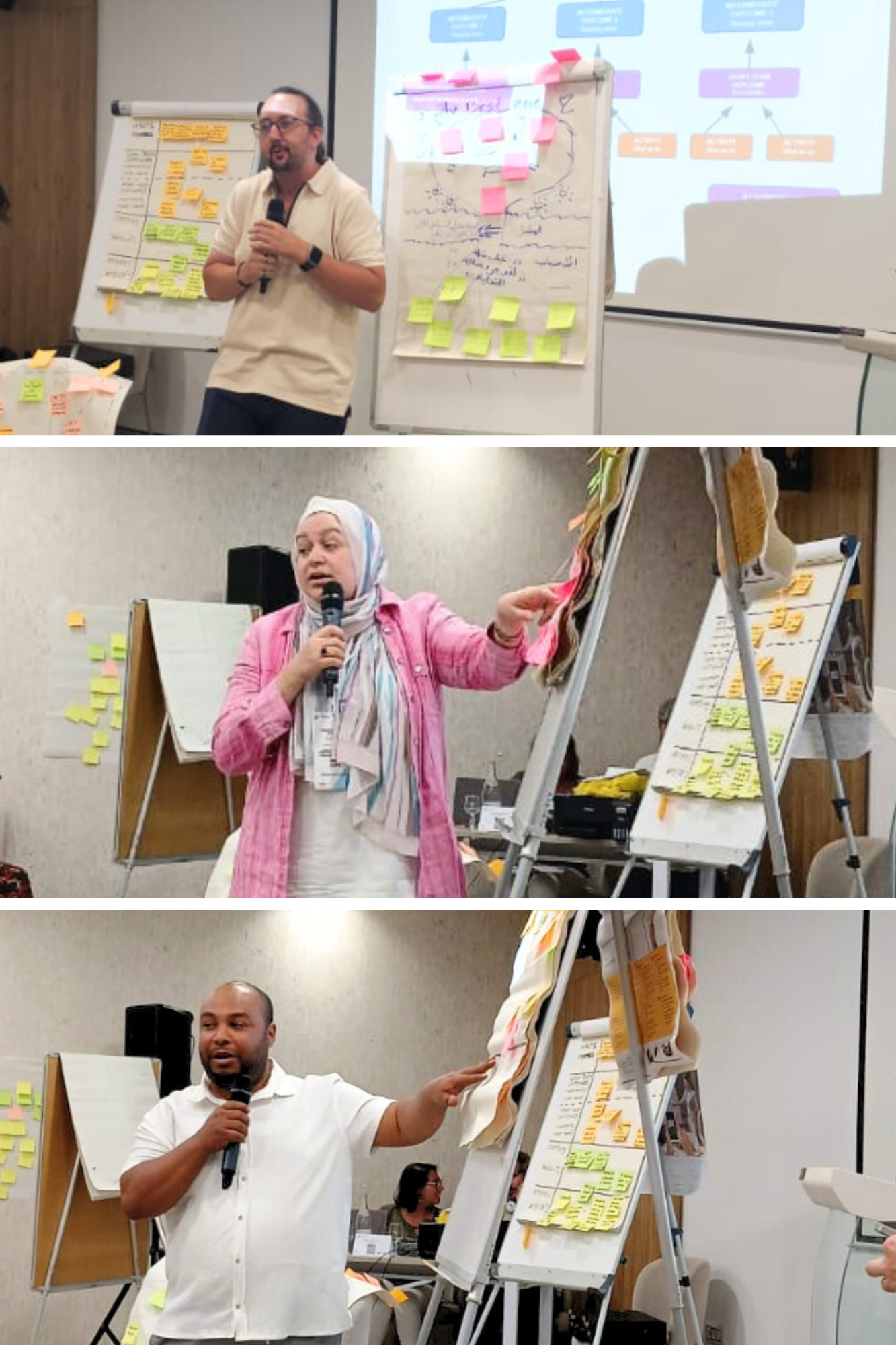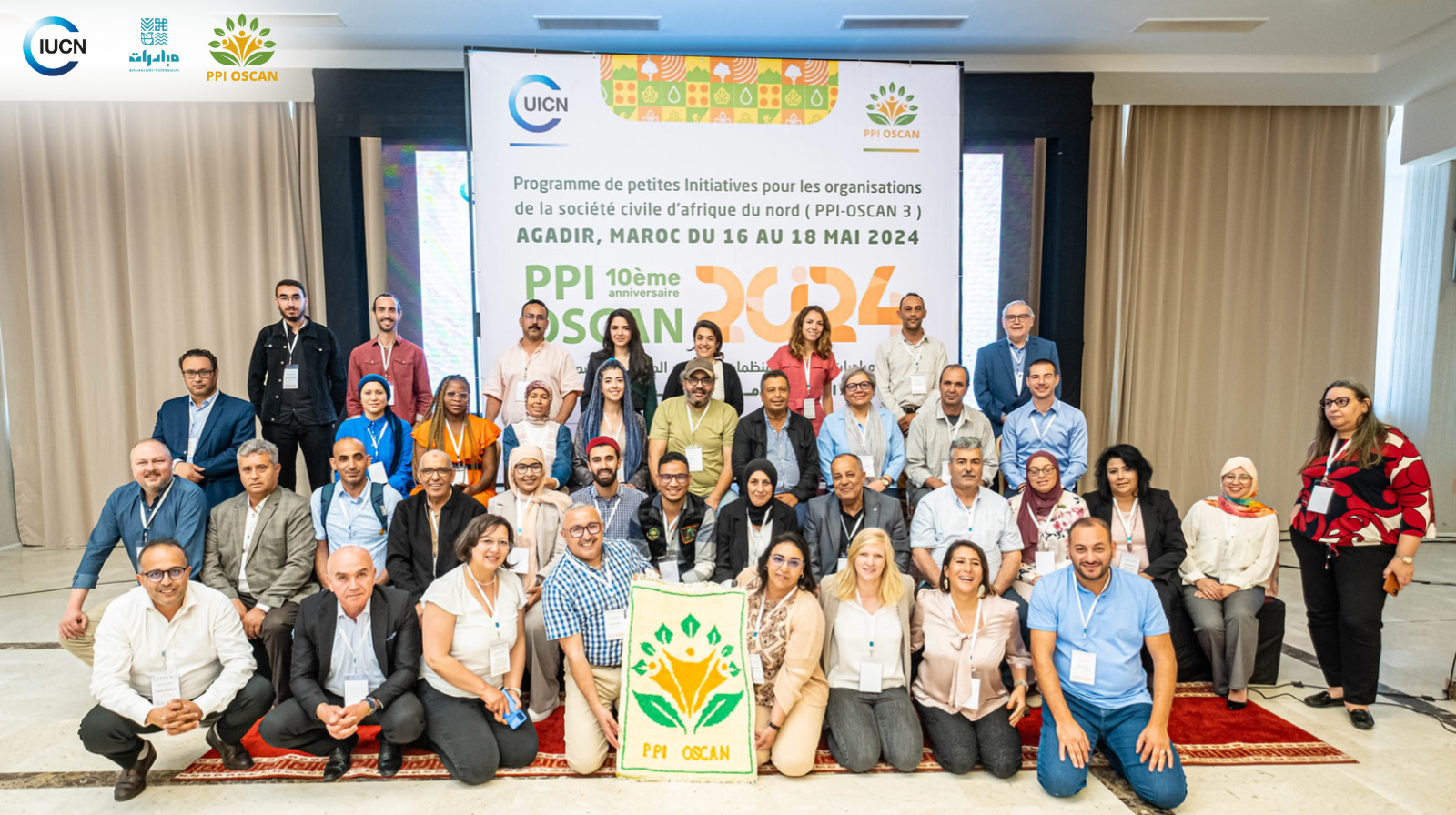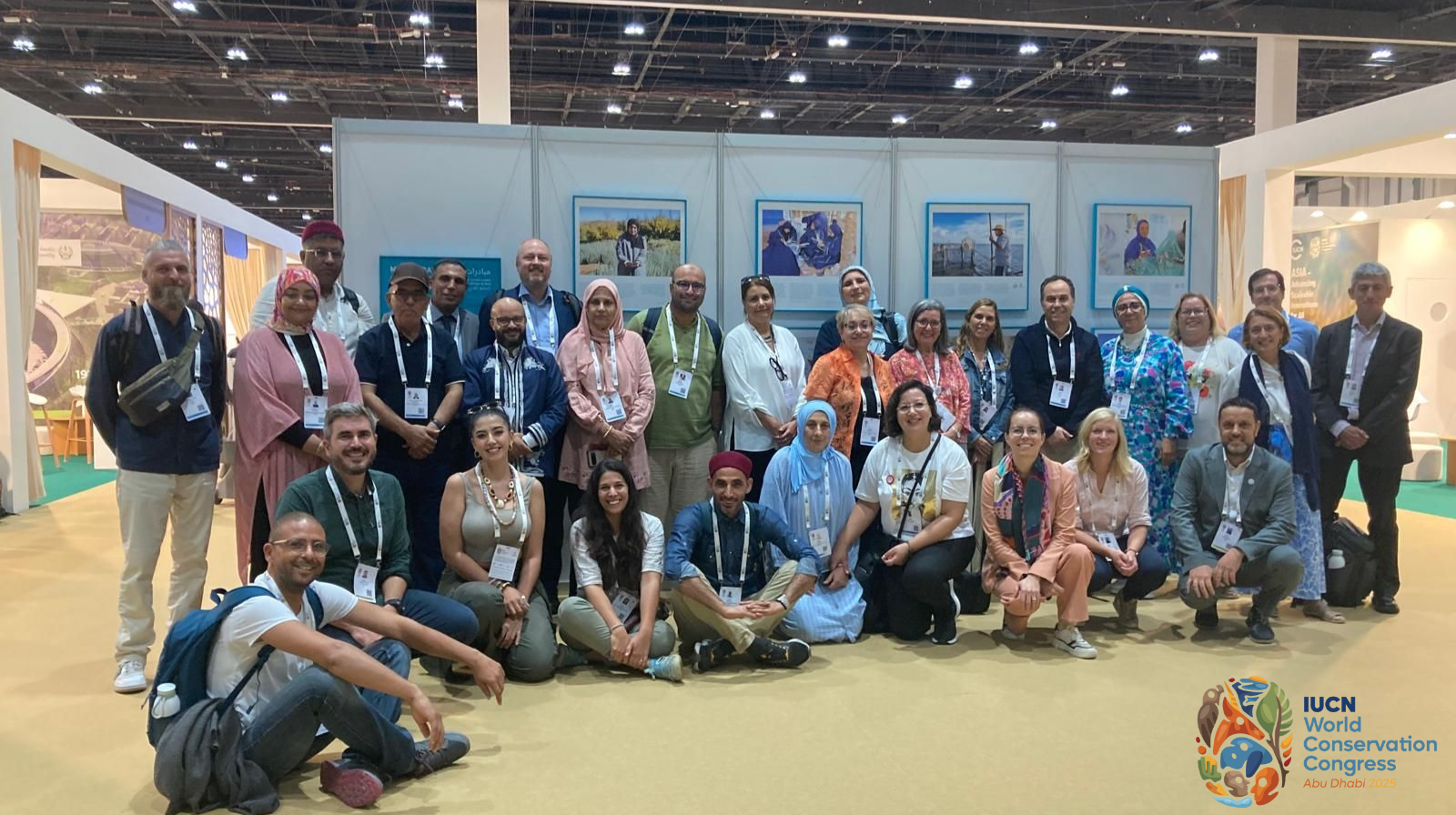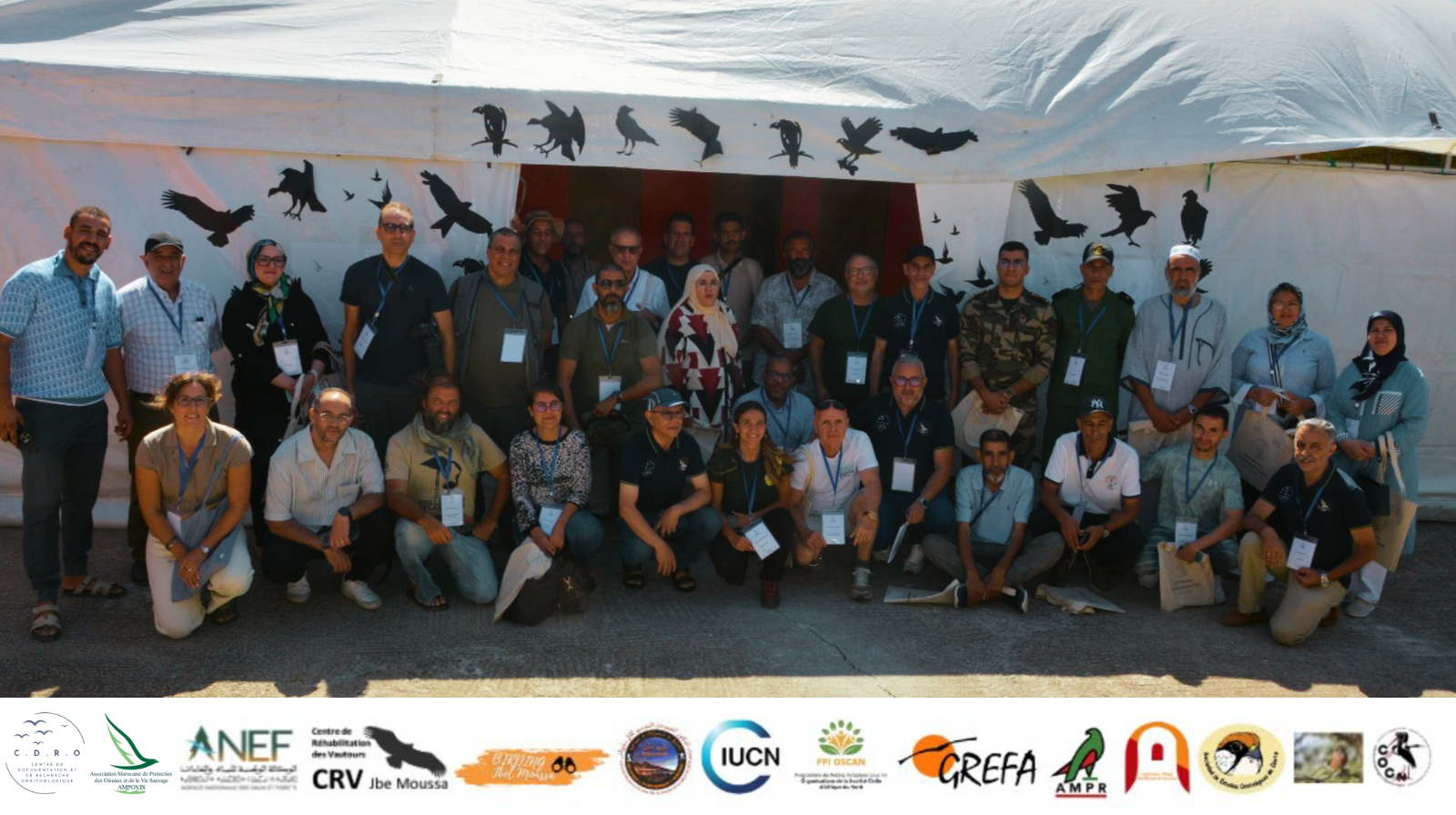Local Associations at the Forefront of Sustainable Tourism in the Mediterranean — Mubadarat Supports Exchange and Capacity Building
From June 23 to 25, 2025, Tunis hosted the regional workshop “Sustainable Tourism & Ecotourism”, bringing together 43 participants, including 24 representatives from civil society organizations (CSOs) from Morocco, Algeria, Tunisia, Libya, Egypt, and Lebanon. Organized by the Mubadarat program of the IUCN Centre for Mediterranean Cooperation and the Tunisian Ministry of Environment, with financial support from AECID, this event marked the first of a six-part training series aimed at helping Mediterranean CSOs design projects that combine biodiversity conservation with tangible benefits for local communities—placing a special focus on women and youth.
Beyond associations, the workshop also welcomed institutional representatives who are partners of IUCN-Med—including the National Agency for Water and Forests (Morocco), the Egyptian Environmental Affairs Agency (EEAA), the Tunisian Ministry of Environment, and the Directorate General of Forests (Tunisia)—as well as sustainable tourism experts, including members of the TAPAS Group (Tourism and Protected Areas Specialists) from IUCN’s World Commission on Protected Areas. Their insights enriched lively discussions on how to guide local tourism dynamics towards more responsible practices that respect ecosystems and support equitable development.
Across the Mediterranean, many associations are committed to steering tourism toward greater sustainability. This training provided them with practical tools, a space for peer exchange, and feedback based on real experiences to strengthen local capacities, highlight natural and cultural heritage, and promote an inclusive tourism economy that benefits local territories.

A training for key actors of the ecological transition
The goal of this training was to create a space for exchange and build the capacities of Mediterranean CSOs by equipping them with practical tools to design and implement sustainable, territory-rooted projects. As true actors of inclusive ecological transition, these organizations play a central role in mobilizing communities and building fairer development models.
This initiative is fully aligned with the mission of the Mubadarat program, which aims to:
-
Strengthen the technical and strategic capacities of local CSOs;
-
Promote the inclusion of youth and women in environmental projects;
-
Encourage local development models based on sustainable employment and ecological resilience.
The discussions helped identify best practices and address common challenges faced by associations: uncertain legal frameworks, local community engagement, project sustainability beyond funding cycles, access to the tourism market, and more.
A three-step training
Day 1: Understanding the Principles and Tools of Sustainable Tourism

The first day introduced the key principles of sustainable tourism, tailored to the context of NGOs, blending strategic thinking with hands-on tools. Topics included:
-
An overview of tourism dynamics in the Mediterranean region;
-
Intervention approaches adapted for CSOs, based on results- and impact-oriented planning;
-
Lessons learned from projects funded by Mubadarat mechanisms, including PPI OSCAN 3 and TransCap 3 with tourism components;
-
Adapting coastal tourism destinations to climate change using Nature-based Solutions (NbS);
-
Reducing tourism pressures on sensitive ecosystems;
-
Challenges of ecotourism and community tourism: governance, stakeholder engagement, market access;
-
The role of tourism and visitor management in protected areas.

Day 2: Field visits to Ichkeul National parc and Ghar El Melh
The second day provided participants with on-the-ground experience through two case studies:
-
Ichkeul National Park, a UNESCO World Heritage Site, where discussions focused on ecotourism and visitor management in protected areas;
-
The coastal wetland of Ghar El Melh, known for its rich cultural heritage and climate adaptation efforts. Topics included heritage preservation, managing tourism pressures, community tourism, and local adaptation strategies.



Day 3: Designing Civil Society Projects on Sustainable Tourism
On the third day, participants applied their learning to develop preliminary project concepts. Through a participatory process, they worked on:
-
Project design methodologies using a NbS approach;
-
Integrating social inclusion (gender and youth) into planning;
-
Practical exercises to sketch sustainable, locally-rooted, inclusive projects that offer solutions for Mediterranean ecosystems.

This training served as a true learning and co-creation space for Mediterranean civil society actors, once again demonstrating that well-designed tourism can be a powerful driver for sustainable local development, ecosystem preservation, and community resilience.

The Mubadarat program seeks to highlight CSOs’ field experience while offering methodological guidance, targeted resources, and networking opportunities. It is part of a regional movement that recognizes the central role of civil society in shaping a more sustainable and just tourism sector.
To learn more about the training cycle of the Mubadarat program around Nature-based Solutions, click here.







